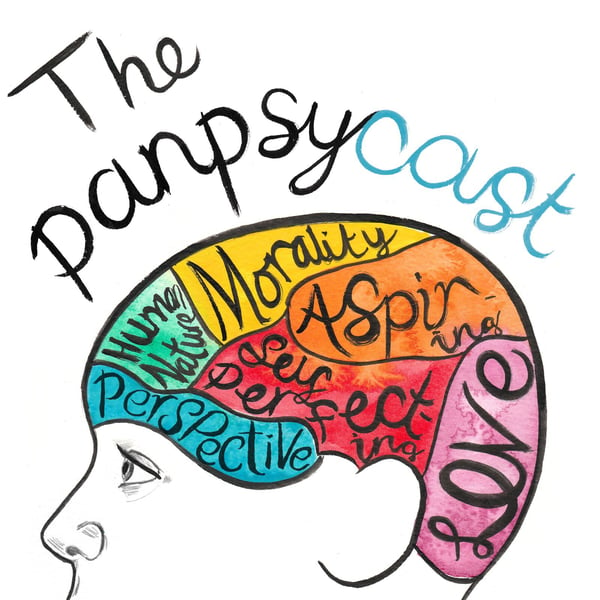Episode 141, ‘Deadly Sins’ with Elizabeth Oldfield (Part I - Fully Alive)
The Panpsycast Philosophy Podcast
Jack Symes | Andrew Horton, Oliver Marley, and Rose de Castellane
4.8 • 604 Ratings
🗓️ 23 March 2025
⏱️ 37 minutes
🧾️ Download transcript
Summary
Much of ethics is relational: it’s about how we treat other people, the world around us, and how those relationships shape who we become. In philosophy, this often gets formalised as a set of virtues to cultivate, duties to obey, or harms to avoid. But today, we rarely talk about sins – let alone the seven deadly sins.
Historically rooted in the Christian tradition – pride, greed, lust, envy, gluttony, wrath, and sloth – have been understood not just as personal failings. They were taken seriously because they obscured what it meant to flourish: that is, to be fully alive. They are, fundamentally, habits of being that corrode our ability to love. So, what might we learn today from the seven deadly sins? How can these ancient categories illuminate our lives, in a world marked by disconnection and distraction?
In this episode, we’ll be speaking about the seven sins with Elizabeth Oldfield. Elizabeth is a writer, speaker, host of The Sacred podcast, and the former director of Theos Think Tank. In her recent book Fully Alive, she revives the seven deadly sins – not as a tool for moral condemnation, but as a lens through which to examine our practices and principles.
We’ll be talking with Elizabeth about how sin, properly understood, can help us confront the crisis of meaning and the collapse of community. We’ll also explore her Christian vision of moral transformation and why it’s vital to believers and non-believers alike.
Links
Elizabeth Oldfield, Fully Alive: Tending to the Soul in Turbulent Times
Sarah Stein Lubrano, Don't Talk About Politics: How to Change 21st-Century Minds
Transcript
Click on a timestamp to play from that location
| 0:00.0 | Much of ethics is relational. |
| 0:09.0 | It's about how we treat other people, the world around us, and how those relationships shape who we become. |
| 0:15.0 | In philosophy, this often gets formalized as a set of virtues to cultivate, duties to obey, or harms to avoid. But today, |
| 0:22.9 | we rarely talk about sins, let alone the seven deadly sins. Historically rooted in the Christian |
| 0:29.0 | tradition, pride, greed, lust, envy, gluttony, wrath and sloth have been understood not just |
| 0:35.8 | as personal failings. They were taken seriously |
| 0:38.5 | because they obscured what it meant to flourish, that is, to be fully alive. They are fundamentally |
| 0:44.2 | habits of being that corrode our ability to love. So, what might we learn today from |
| 0:49.8 | the seven deadly sins? How can these ancient categories illuminate our lives in a world marked by |
| 0:55.4 | disconnection and distraction? In this episode, we'll be speaking about the seven sins with Elizabeth |
| 1:00.5 | Oldfield. Elizabeth is a writer, speaker, host of the sacred podcast and the former director of the |
| 1:05.9 | Theos think tank. In her recent book, Fully Alive, she revives the seven deadly sins, not as a tool for moral condemnation, but as a lens through which to examine our practices and principles. |
| 1:17.3 | We'll be talking with Elizabeth about how sin, properly understood, can help us confront the crisis of meaning and the collapse of community. |
| 1:24.7 | We'll also explore her Christian vision of mold transformation and why it's vital |
| 1:29.0 | to believers and non-believers alike. |
| 1:54.6 | Hello and welcome to episode 141 of the pan sidecast, dropping the G-bomb. |
| 2:03.9 | I'm Jack Symes, and I'm delighted to be joined once again by the man who's not like any of us, it's Mr. Olly Marley. Hello. |
| 2:11.4 | And the beloved Elizabeth Oldfield. Hello, and now I want to know in what ways Olly is not like anyone else. I hope we'll get to that. He's ineffable. He's beyond philosophical concepts. You can only speak about him in the negative. |
| 2:20.3 | So, Liz, the first question we ask all of our guests is normally what they take philosophy to be. |
| 2:25.3 | And I suppose you're doing something a little different to the philosophy we traditionally conceive here on the show. |
| 2:31.3 | Rather, you're offering a sort of philosophy of life, guidance and |
| 2:35.1 | direction on how to live well. Now, you mentioned in our live event between God and atheism, |
... |
Please login to see the full transcript.
Disclaimer: The podcast and artwork embedded on this page are from Jack Symes | Andrew Horton, Oliver Marley, and Rose de Castellane, and are the property of its owner and not affiliated with or endorsed by Tapesearch.
Generated transcripts are the property of Jack Symes | Andrew Horton, Oliver Marley, and Rose de Castellane and are distributed freely under the Fair Use doctrine. Transcripts generated by Tapesearch are not guaranteed to be accurate.
Copyright © Tapesearch 2025.

